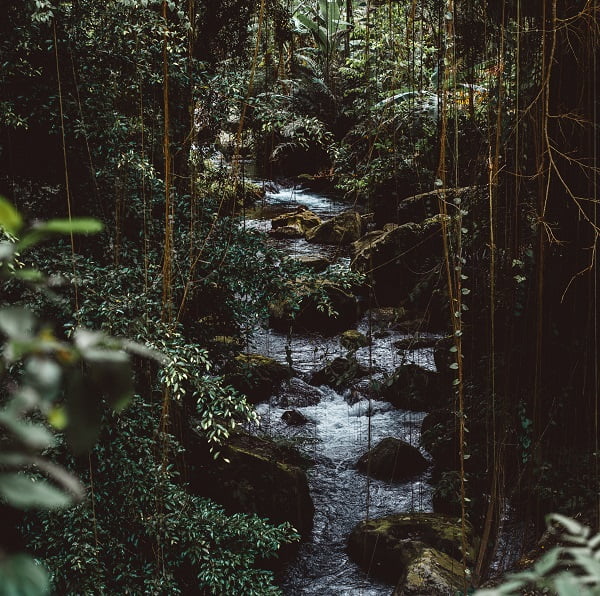Biodiversity : Definition, Importance, Threats & Conservation
Many wonder what biodiversity is, and therefore, today we will inquire about the concept of biodiversity and why it is important. Biodiversity means the variability of living organisms in any natural environment. But it is a much deeper concept that has many implications.
The importance of biodiversity lies in all the dimensions in which it can be found. Thus, we can talk about the biodiversity within the same species, between different species and biodiversity in an ecosystem. An ecosystem is a biological system formed by a community of living beings and the environment in which they live and develop.
We can analyze biodiversity at different levels: we can talk about what exists on Earth, due to the huge number of different species that inhabit the Earth, in the same way, that we can talk about what exists in the park’s pond.
What is the meaning of biodiversity?
If we stop to think about all the living beings that live in the park’s pond we will realize the immense biodiversity that is in it. We don’t just talk about fish, frogs, and aquatic plants that we see with the naked eye. If we look in detail, surely we will also see the occasional insect, a worm, a snail …
But it is that the thing goes further, because if we had a microscope to be able to analyze a small sample of the water in the pond and discover what bacteria live in its waters. We could still greatly increase the list of living things that contribute to the biodiversity of the pond.
Although biodiversity does not only talk about species, it also includes the genetic diversity that exists within the same species. Genetic biodiversity consists of the variation of genes that occur within the same species. If we think about the number of different individuals that can be included within the same species, we return to realize how broad the concept of biodiversity can be.
The concept of biodiversity is very broad but could be explained as biological diversity
Without going too far, just think about the number of different dog breeds that exist. A Carlino and a San Bernardo belong to the same species, however, variations in size, color, shape, are dictated by genes. For which they are largely responsible for diversity within the same species, or what is also known as intraspecific biodiversity.
Biodiversity also encompasses the variability of entire habitats and ecosystems. In this case, we talk about ecological biodiversity and it is the variety of ways in which species interact with each other and with their environment. In fact, not long ago we told you that there are about a trillion species on Earth, and most are unknown. So we have a long way to go to find out all the species that inhabit the Earth.
Many wonder what biodiversity is, and therefore, today we will inquire about the concept of biodiversity and why it is important. Biodiversity means the variability of living organisms in any natural environment. But it is a much deeper concept that has many implications.
The importance of biodiversity lies in all the dimensions in which it can be found. Thus, we can talk about the biodiversity within the same species, between different species and biodiversity in an ecosystem. An ecosystem is a biological system formed by a community of living beings and the environment in which they live and develop.
We can analyze biodiversity at different levels: we can talk about what exists on Earth, due to the huge number of different species that inhabit the Earth, in the same way, that we can talk about what exists in the park’s pond.
What is the meaning of biodiversity?
If we stop to think about all the living beings that live in the park’s pond we will realize the immense biodiversity that is in it. We don’t just talk about fish, frogs, and aquatic plants that we see with the naked eye. If we look in detail, surely we will also see the occasional insect, a worm, a snail …

Source: Unsplash
But it is that the thing goes further, because if we had a microscope to be able to analyze a small sample of the water in the pond and discover what bacteria live in its waters. We could still greatly increase the list of living things that contribute to the pond.
Although biodiversity does not only talk about species, it also includes the genetic diversity that exists within the same species. Genetic biodiversity consists of the variation of genes that occur within the same species. If we think about the number of different individuals that can be included within the same species, we return to realize how broad the concept of biodiversity can be.
The concept is very broad but could be explained as biology.
Without going too far, just think about the number of different dog breeds that exist. A Carlino and a San Bernardo belong to the same species, however, variations in size, color, shape, are dictated by genes. For which they are largely responsible for diversity within the same species, or what is also known as intraspecific biodiversity.
Biodiversity also encompasses the variability of entire habitats and ecosystems. In this case, we talk about ecology and it is the variety of ways in which species interact with each other and with their environment. In fact, not long ago we told you that there are about a trillion species on Earth, and most are unknown. So we have a long way to go to find out all the species that inhabit the Earth.

Source: Unsplash
And there are some curiosities about it. It turns out that tropical ecosystems (such as forests) have a greater biological diversity than more temperate areas. On the other hand, invertebrate animals are the most diverse and numerous group of animals that exist, more than half of identified animals are invertebrates. This group includes insects, crustaceans, sponges, etc. Not to mention how much we have left to discover regarding the diversity of microscopic organisms such as bacteria, viruses, and protozoa.
Why is biodiversity important?
At this point, surely you already know what biodiversity means and surely you believe us if we tell you that it is extremely important both for people and for all other ecosystems. Thanks to biological diversity we can enjoy a wide variety of different foods and materials. Without a wide variety of plants and pollinators, supermarkets would have few products to offer. So it contributes to the economy.
Thanks to biodiversity, life on Earth is possible. The cleanliness of the waters, the absorption of chemical products, the fertile soils, the production of the oxygen that we breathe all this is possible thanks to biodiversity. In addition, this biological diversity is what allows ecosystems to adapt to extreme conditions or any disturbance of the environment. the greater the probability of survival.
Earth’s biodiversity is in danger
But as in everything in this life, there are conditions that threaten it of the Earth. The extinction of species is part of the natural process of life on Earth. For thousands of years, new species have emerged on Earth and these have evolved and then become extinct. These changes occur due to the natural variations that occur in the environment.
However, today, due to human activity that constantly produces unnatural environmental changes, many species are becoming extinct at an accelerated and dangerous rate. Some activities have direct effects on species and their ecosystems, we cause the loss or degradation of their habitats, we spread non-native species and diseases. And we also damage biodiversity indirectly with pollution and climate change.
Now that you know what biodiversity is and why it is so important both for us and for other living beings. You may be interested to know why Posidonia is so important for the Mediterranean Sea. Indeed, you are right, it has to do with the biological diversity it provides to the waters of the Mediterranean Sea.
You May Also Interested:
